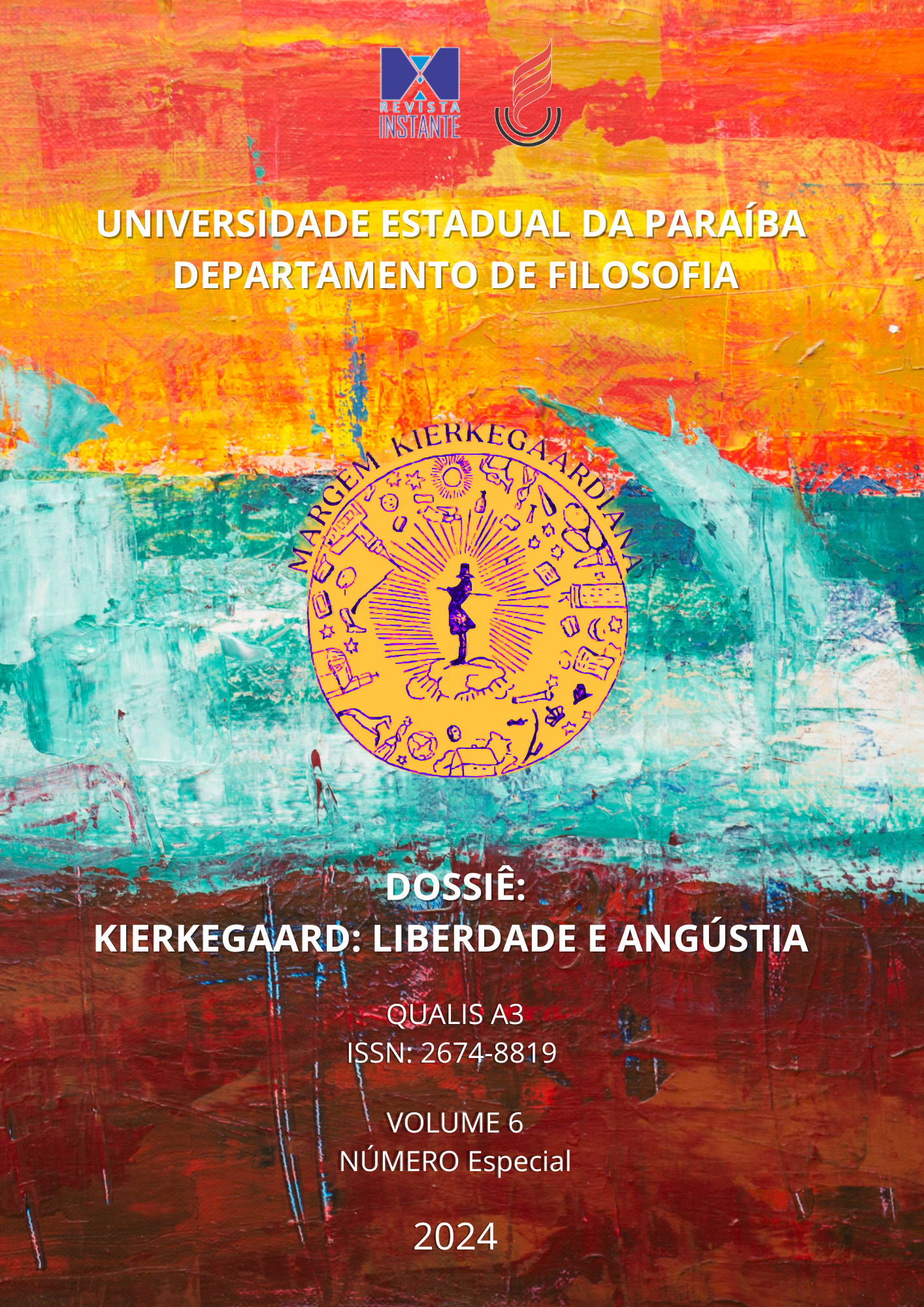HAUFNIENSIS AND TRUE COMPASSION: REFLECTIONS FOR PSYCHOLOGICAL CLINICS
Keywords:
Søren Kierkegaard. Helping relationship. Empathy. Psychology.Abstract
Compassion is usually understood as a feeling of grief and sadness caused by the tragedy of others, awakening the desire to help and comfort those who suffer. In this way, compassion refers to a human value and a communal experience that combines the ability to feel what others feel, understand their suffering, and express oneself through helpful action in the situation. In the tradition of psychology, particularly in its clinical modality, the ability to feel and understand the other's experience is described from the perspective of empathy, seen as a fundamental skill for establishing a helping relationship. This text aims to engage in a dialogue with the pseudonym Haufniensis in his considerations about different forms of compassion: from the interpretation of an event from the perspective of pity, which diminishes the other, to a possible perspective he calls true compassion. True compassion is characterized by a knowledge without illusions and a slow, challenging advancement in elucidating reality. Following the discussions opened by Haufniensis, it is concluded that it is possible to establish a helping relationship in clinical psychology that embodies true compassion – a disposition that patiently awaits the moment, that space and time in which it becomes possible to dissolve the opacity of meanings and clarify the totality of what is at stake, guiding senses and actions toward what is essential.
References
ASSIS, Machado. O alienista. São Paulo: Editora Núcleo, 2012.
CAMPOS, Eduardo S. A paciência como método. Em Aoristo: International Journal of Phenomenology, Hermeneutics and Metaphysics. Toledo, v.r, nº 2, pp. 115-125, 2022.
FEIJOO, A. M. L. C. & PROTASIO, M. M. Os desafios da clínica psicológica: tutela e escolha. Em Revista da abordagem gestáltica, XVI (2), pp. 167-172, jul-dez, 2010.
JUSTO, José M. Introdução. In KIERKEGAARD, Søren. A. A repetição. Trad.: José Miranda Justo. Lisboa: Editora Relógio D’Água, 2009, pp. 9-22.
KIERKEGAARD, Søren. A. As obras do amor: algumas considerações cristãs em forma de discursos. Trad.: Álvaro Luis. M. Valls. Petrópolis: Editora Vozes; São Paulo: Editora Universitária São Francisco, 2005.
__________. A. A repetição. Trad.: José Miranda Justo. Lisboa: Editora Relógio D’Água, 2009.
__________. O conceito de angústia. (Á. L. M. Valls, Trad.) Petrópolis: Editora Vozes; São Paulo: Editora Universitária São Francisco, 2010.
__________. Discursos edificantes em diversos espíritos - 1847. (Á. L. M. Valls e Hagelund, E., Trads.). São Paulo: LiberArs, 2018a.
__________. Prefácios. Trad.: Susana Junic. Lisboa: Relógio D’Água, 2018b.
__________. Três discursos edificantes [1843] (Levinhsphul, H. Trad.). Teresópolis: Edição do tradutor, 2022.
PROTASIO, Myriam M. O Amor se conhece pelos frutos: considerações de Kierkegaard sobre as Obras do Amor. In: Reflexões sobre o luto e práticas clínicas: Atendimentos clínicos supervisionados pela professora Ana Maria Lopez Calvo de Feijoo e Estudos de Convidados. Rio de Janeiro: Edições IFEN, 2022, pp. 19-50.
__________. O aspecto retraído do entre da relação clínica. In: Entrelaçamentos: perspectivas clínicas em Psicologia. Uma homenagem aos 70 anos de Ana Maria Lopez Calvo de Feijoo. Rio de Janeiro: Edições IFEN, pp. 19-43, 2023.










